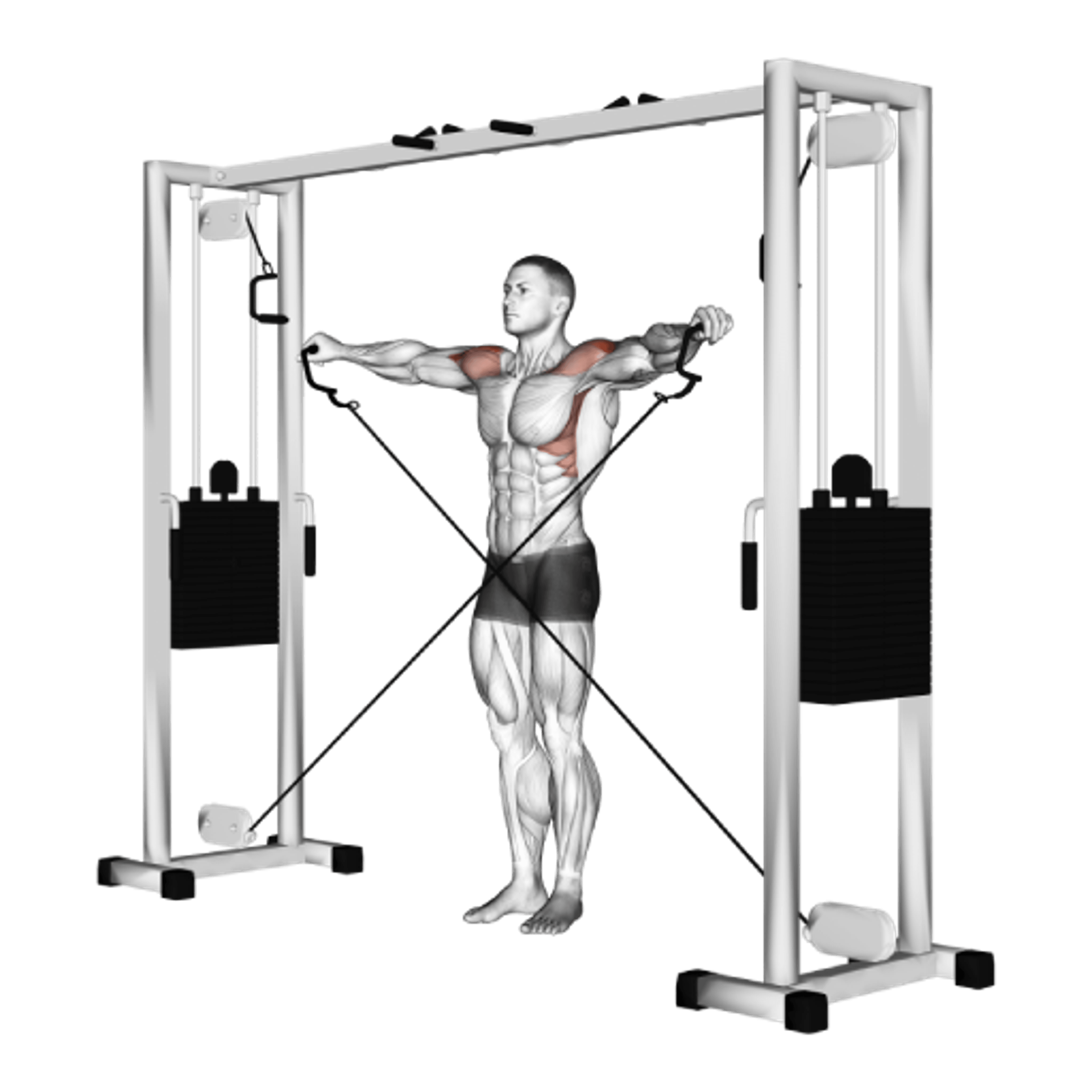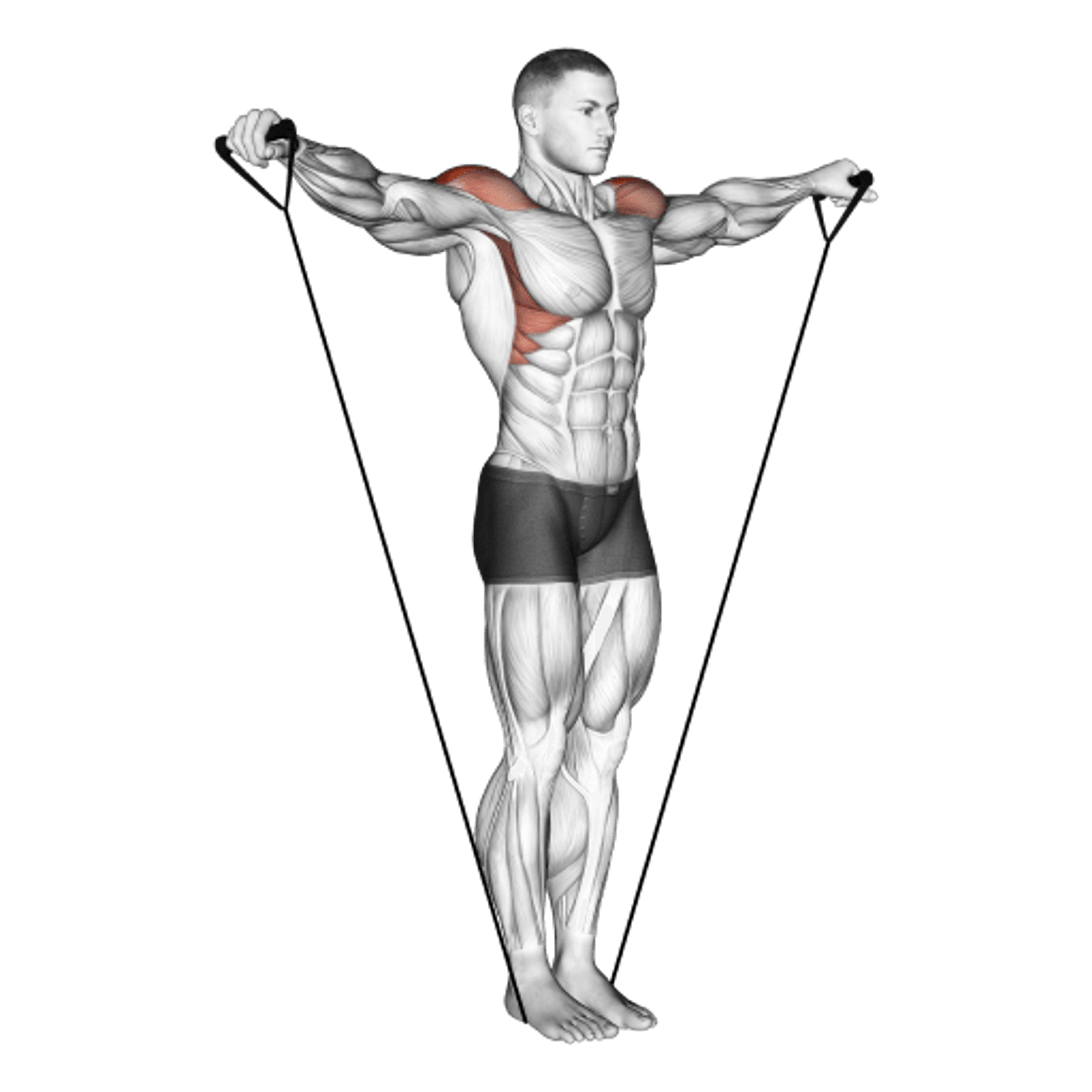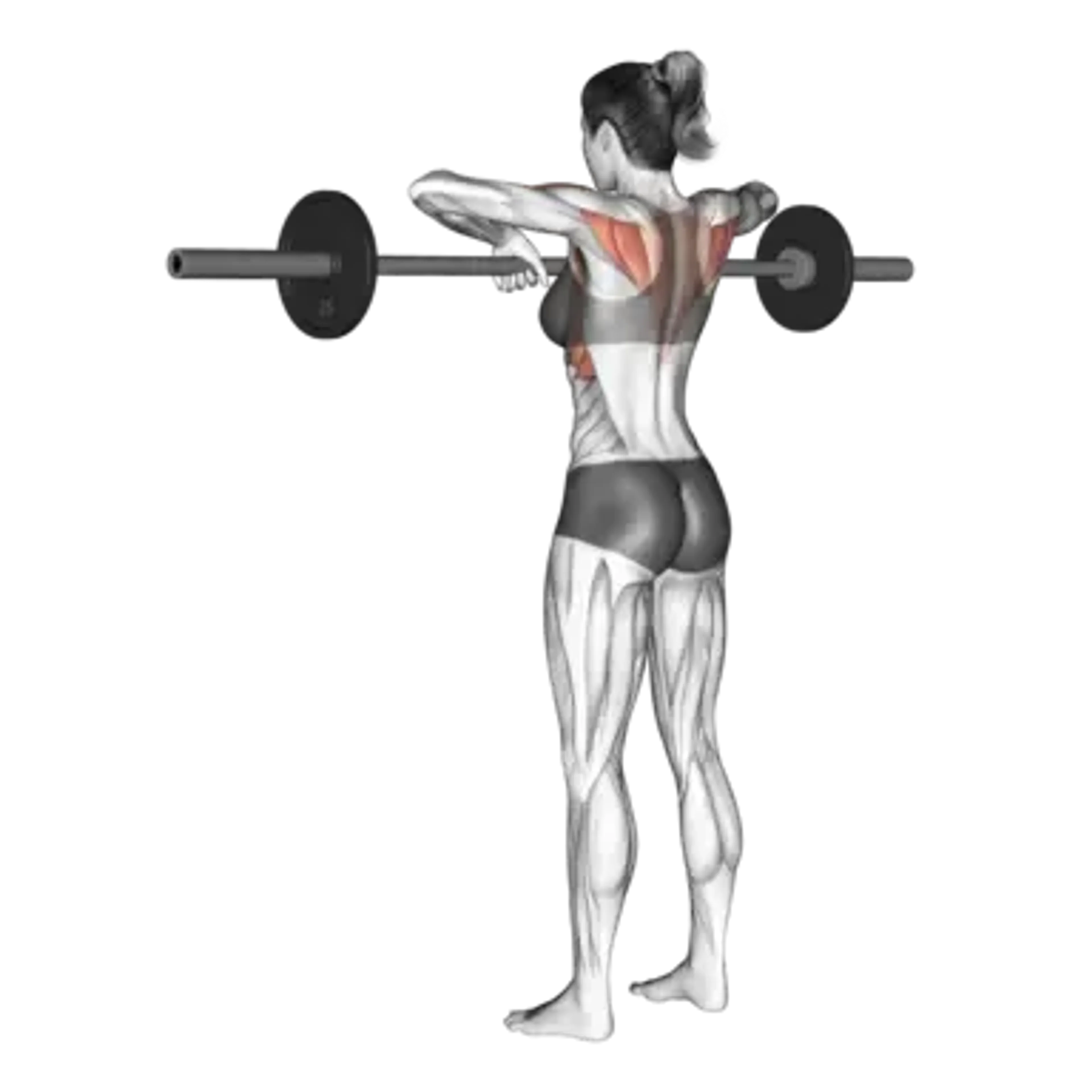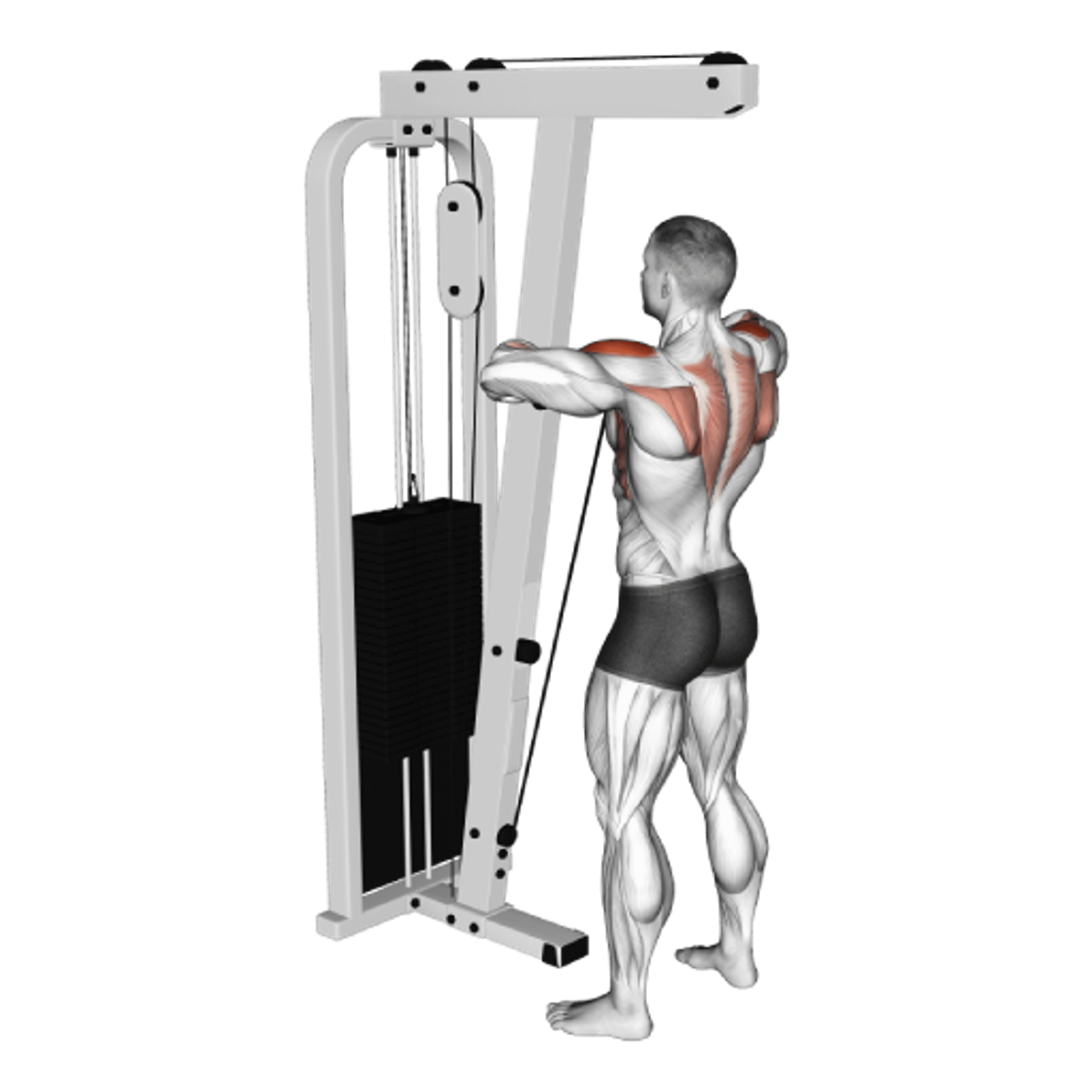Dumbbell Seated Lateral Raise

Overview
- Primary Focus:
- Shoulders.
- Equipment:
- Dumbbell and bench.
- Difficulty:
- Beginner.
General Information
Dumbbell Seated Lateral Raise is an isolation exercise that primarily targets the shoulders. It is a beginner-level movement that minimizes unnecessary body movement, making it easy to focus on the lateral deltoids with controlled reps.
Seated positioning reduces momentum and lower-back demands, helping you keep tension where you want it. It works well for hypertrophy sets, finishers, or as an activation drill before pressing work.
Small load increases go a long way; prioritize smooth arcs and steady tempo. Expect a pronounced burn in the mid-range with minimal joint irritation when technique is consistent.
Muscles Worked
- Deltoid
- Primary
- Serratus Anterior
- Medium
- Infraspinatus
- Low
- Lower Trapezius
- Low
- Upper Trapezius
- Low
Instructions
- Sit tall on a bench with dumbbells at your sides, feet planted and ribs stacked over the pelvis.
- Set shoulders down and slightly back; keep a slight elbow bend and neutral wrists throughout.
- Raise both arms out to the sides to about shoulder height without shrugging or leaning forward/backward.
- Pause briefly, keeping elbows slightly below wrists to keep tension on the lateral deltoids.
- Lower under control until the dumbbells hover off the thighs, maintaining a small gap to preserve tension.
- Repeat for the target reps with a steady tempo and constant shoulder position.
Common Mistakes
Injuries
Dumbbell Seated Lateral Raise is a low risk exercise when performed with proper technique.
Keep loads modest to avoid torso rocking and upper-trap takeover. If shoulder discomfort appears, reduce range slightly and slow the eccentric phase.
Regress by using lighter dumbbells or one arm at a time; progress with top pauses or tempo work. Stop if you feel sharp pain or radiating symptoms.
Alternative Exercises
Frequently Asked Questions
- Q: Why choose seated over standing?
Seated raises reduce momentum and make it easier to keep the torso quiet, often improving shoulder tension and consistency.
- Q: How high should I raise?
Around shoulder height is sufficient for most lifters. If pinching occurs, stop slightly below shoulder level and focus on control.
- Q: What rep range is best?
10-20 reps per set with slow eccentrics works well for hypertrophy and control, especially with light weights.
Overview
- Primary Focus:
- Shoulders.
- Equipment:
- Dumbbell and bench.
- Difficulty:
- Beginner.




